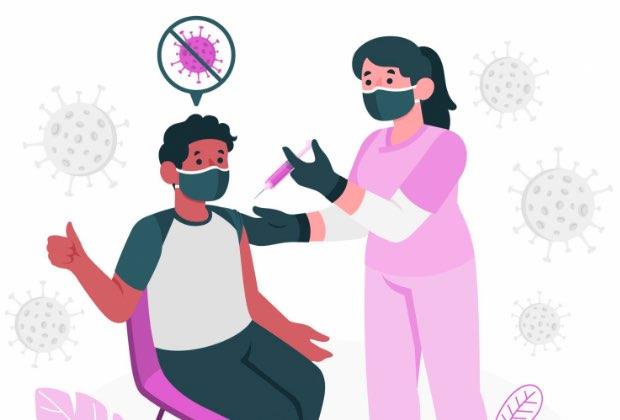Table of Contents
- Pioneering Discoveries in Health Medical Science
- Understanding the Role of Genetics in Modern Medicine
- Integrating Technology to Enhance Patient Care
- The Importance of Preventative Measures in Healthcare
- Ethical Challenges and Innovations in Medical Research
- Q&A
- Concluding Remarks
Pioneering Discoveries in Health Medical Science
Over the years, the field of health and medical science has been marked by revolutionary discoveries that have profoundly transformed how we understand and tackle diseases. CRISPR-Cas9 stands out as a remarkable milestone, providing researchers with the ability to edit genes with unprecedented precision. This groundbreaking technology has opened new avenues for treating genetic disorders, promising potential cures for conditions that were once deemed untreatable.
In parallel, the advent of personalized medicine has ushered in a new era of healthcare tailored to individual genetic profiles. By leveraging big data and advanced algorithms, medical professionals can now offer treatments and preventive measures specifically designed for each patient’s unique genetic makeup. This shift not only enhances treatment efficacy but also minimizes adverse side effects, ensuring a more humane and efficient approach to healing.
- Nanotechnology in drug delivery
- Telemedicine advancements
- Artificial intelligence in diagnostics
The rise of wearable health technology represents another groundbreaking discovery. Devices that monitor vital signs and activity levels have become commonplace, empowering individuals to take charge of their well-being. These innovations not only provide valuable insights into personal health metrics but also facilitate early detection of potential issues, enabling timely medical intervention.
| Innovation | Impact |
|---|---|
| CRISPR-Cas9 | Genetic disorder treatment |
| Personalized Medicine | Individualized therapies |
| Wearable Technology | Real-time health monitoring |


Understanding the Role of Genetics in Modern Medicine
In recent years, the fusion of genetics and medical science has paved the way for revolutionary changes in healthcare, facilitating a deeper understanding of how our genes influence health. Genetic research has unlocked insights into various conditions, offering a personalized approach to treatment and prevention. This paradigm shift moves away from the traditional one-size-fits-all therapeutic model, focusing instead on individual genetic makeup. Scientists and medical professionals are now able to identify genetic predispositions to certain diseases, enabling early intervention and more effective management plans.
One of the key areas where genetics has made a notable impact is in the field of precision medicine. This approach tailors medical treatment to the individual characteristics, needs, and preferences of each patient. With the help of genetic information, healthcare providers can classify patients into subgroups, thus determining the most effective therapeutic protocol. This method isn’t just limited to rare genetic disorders; it extends to more common afflictions such as cancer, diabetes, and cardiovascular diseases. By customizing treatment based on genetic data, outcomes can be significantly improved, and risks minimized.
Beyond treatment, genetics plays a critical role in preventative medicine. By examining familial genetic patterns, it becomes possible to anticipate potential health issues before they manifest. Consider the following benefits of genetic screenings:
- Identification of hereditary diseases
- Early risk assessment for chronic conditions
- Opportunities for lifestyle and dietary adjustments
Such insights are invaluable in crafting a proactive health strategy, transforming how we perceive and manage wellness across our lifespans.
| Aspect | Impact |
|---|---|
| Early Disease Detection | Improves survival rates and quality of life. |
| Personalized Treatments | Tailors specialty drugs to genetic profiles. |
| Risk Factor Reduction | Encourages preventive measures and lifestyle changes. |


Integrating Technology to Enhance Patient Care
Incorporating cutting-edge tools and systems into healthcare environments is transforming the way clinicians provide treatment and manage patient outcomes. Electronic Health Records (EHRs) are one example where digitalization has streamlined the documentation process, leading to fewer errors and faster access to patient history. This digital approach enables healthcare providers to quickly retrieve and share patient information across different departments, ensuring seamless continuity of care. By harnessing the power of EHRs, medical practitioners can focus more on patient interactions and less on paperwork, ultimately enhancing the quality of care.
The introduction of telemedicine has further expanded the horizons of patient care, making healthcare more accessible and convenient. Patients who reside in remote areas or have limited mobility can now consult with healthcare experts from the comfort of their homes. This not only reduces travel time and costs but also ensures that individuals receive timely consultations which can be critical in managing chronic conditions. Telemedicine platforms often incorporate video calls, secure messaging, and virtual monitoring capabilities that help bridge the gap between patients and providers, reinforcing the relationship through ongoing communication.
Technological advancements also extend to personalized medicine, where data-driven approaches facilitate tailored treatment plans for patients based on their genetic makeup and health history. By analyzing patient data and identifying specific biomarkers, healthcare professionals can predict how patients will respond to drugs or therapies, optimizing treatment efficiency. This customization is particularly beneficial in fields such as oncology, where targeted therapies based on genetic profiles can significantly improve patient outcomes. Initiatives in personalized care exemplify the potential of technology in creating holistic, adaptive healthcare models that meet individual patient needs more precisely.


The Importance of Preventative Measures in Healthcare
Preventative healthcare is a cornerstone of modern medical science, focusing on averting illnesses before they manifest, thus enhancing the quality of life and efficient resource allocation in healthcare systems. Taking measures such as regular screenings and vaccinations can significantly mitigate the risk of chronic diseases. These efforts not only decrease the overall burden on healthcare facilities but also empower individuals to lead healthier, more informed lives.
Adopting a proactive approach in healthcare often involves embracing lifestyle changes that enhance well-being and longevity. Simple yet effective practices include:
- Maintaining a balanced diet rich in fruits, vegetables, and whole grains.
- Engaging in regular physical activity, such as walking or yoga, to boost cardiovascular health.
- Ensuring adequate sleep and stress management to support mental health and overall vitality.
| Preventative Measure | Potential Impact |
|---|---|
| Vaccinations | Reduces outbreak of preventable diseases |
| Regular screenings | Early detection of diseases |
| Health education | Increased public awareness and prevention |
Investment in preventive strategies yields long-term benefits, significantly reducing healthcare costs and promoting sustainable public health models. Governments and healthcare providers often encourage these initiatives through public awareness campaigns and incentives for individuals and communities that consistently partake in preventative care practices. By understanding the importance of these measures, we lay the groundwork for a healthier, more resilient society.


Ethical Challenges and Innovations in Medical Research
The landscape of medical research is undergoing a transformative shift, driven not only by groundbreaking innovations but also by pressing ethical concerns. Researchers today face challenges like balancing the need for anonymity with the benefits of open data sharing. As technology advances, protecting patient privacy becomes a more complex task, necessitating new strategies and regulations. Transparency and informed consent are paramount, with researchers striving to keep participants informed while ensuring their autonomy and rights are respected.
- Data Privacy: Ensuring the confidentiality of personal health information.
- Informed Consent: Continually updating consent processes to reflect new methodologies.
- Equitable Participation: Including diverse populations in research to ensure broader applicability of findings.
Innovations in this field are not limited to technology but extend to ethical frameworks that guide research conduct. One such innovation is the development of adaptable consent models. These models enable participants to adjust their consent based on new findings or changes in research direction. Blockchain technology also presents promising solutions for maintaining data integrity and security in clinical trials, offering a transparent yet secure method of handling sensitive information. The interplay between technological advancements and robust ethical practices ensures that medical research remains both cutting-edge and morally sound.
| Innovation | Ethical Benefit |
|---|---|
| Blockchain | Enhanced data security |
| AI Ethics | Bias reduction in research |
| Flexible Consent Models | Improved participant autonomy |




0 Comments